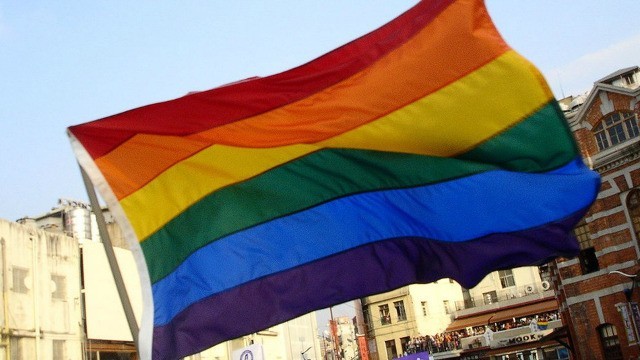LGBTI activists that want changes in law also need to change their tactics.
After the election of the Abbott government some activists pushing for marriage for same-sex couples responded with vitriol.
Some plastered capital cities with posters declaring “F*ck you Tony Abbott”. Except in their version the asterisks was replaced with the last vowel in the alphabet.
Similarly, some University students wore t-shirts with the same branding.
They’re welcome to wear silly t-shirts, but they’d be foolish to think it is anything other than an indulgent ego-stroking exercise and chest thumping for their defiant like-minded friends in defeat.
These cases are fringe; the real change needs to be changed in the mainstream.
Australia’s swing to the centre-right should prompt mainstream advocates to review their tactics.
Some Australians still aren’t ready for same-sex couples to get married, but that doesn’t mean they aren’t open to addressing many other community-specific issues.
For example, the Victorian Ministerial Taskforce on LGBTI health issues can be a useful pathway to make a positive day-to-day impact on people’s lives without upsetting marginal electorates twenty kilometres outside of the CBD.
But the broader change has to be tone.
Past efforts to change laws has been focused on the principle of equality.
If you want to engage the audience for far-left activist groups, the Greens and the ALP you should rally around the equality flag, as has been done through adopting the phrase “marriage equality”.
It’s worked to this point because the audience has been changing the position primarily of the Labor Party. Those days aren’t over, but the debate now needs to move on.
The centre-right rallies around other principles, such as freedom and fairness.
That’s why youthful American Republicans that want to change their Party’s position on the issue refer to the “freedom to marry”.
Freedom comes from a classical liberal approach to self-determination and the importance of preserving human rights to free speech, association, movement, religious faith and property.
Marriage isn’t a human right and is therefore a secondary concern to the preservation and protection of religious freedom. Marriage is a civil right.
While it may work as a sound bite, the “the freedom to marry” is a contortion of a liberal approach to human rights to suit an argument.
Engaging a mainstream centre-right audience requires approaching issues from the amorphous principle of fairness, and it plays well in the suburbs too.
On marriage, advocates have a good argument to make. Same-sex couples are far more likely to be positive contributors to the tax and transfer system because they are less likely to have children.
Similarly, people in relationships are less likely to draw from the social welfare system.
But despite paying a disproportionately higher contribution, they don’t get extended the same civil rights.
It’s an extension of the “no taxation without representation” argument. The same civil obligations should be matched with the same civil rights.
The other change has to be to remove the hubris of arguing that advocates for change are “on the right side of history”.
Change requires moving as many people as possible from a position of indifference to being in favour; and moving those who are opposed to being neutral.
Using such patronising language keeps people in the opposition camp by belittling and trivialising their concerns.
This flawed strategy was used by some advocates for the 1999 Republican referendum.
Advocates argued a Republic was necessary for Australia to finally become a grown up nation.
Yet such language backfired because it belittled our nation’s great achievements. Instead of being open to change, some took offence at the very proposition being put forward, and stopped listening.
Achieving change actually requires understanding the new audience you’re speaking too.
Tim Wilson is a policy director at the Institute of Public Affairs – www.ipa.org.au
Author: Tim Wilson
Publication: Star Observer
Date: 7 November 2013

